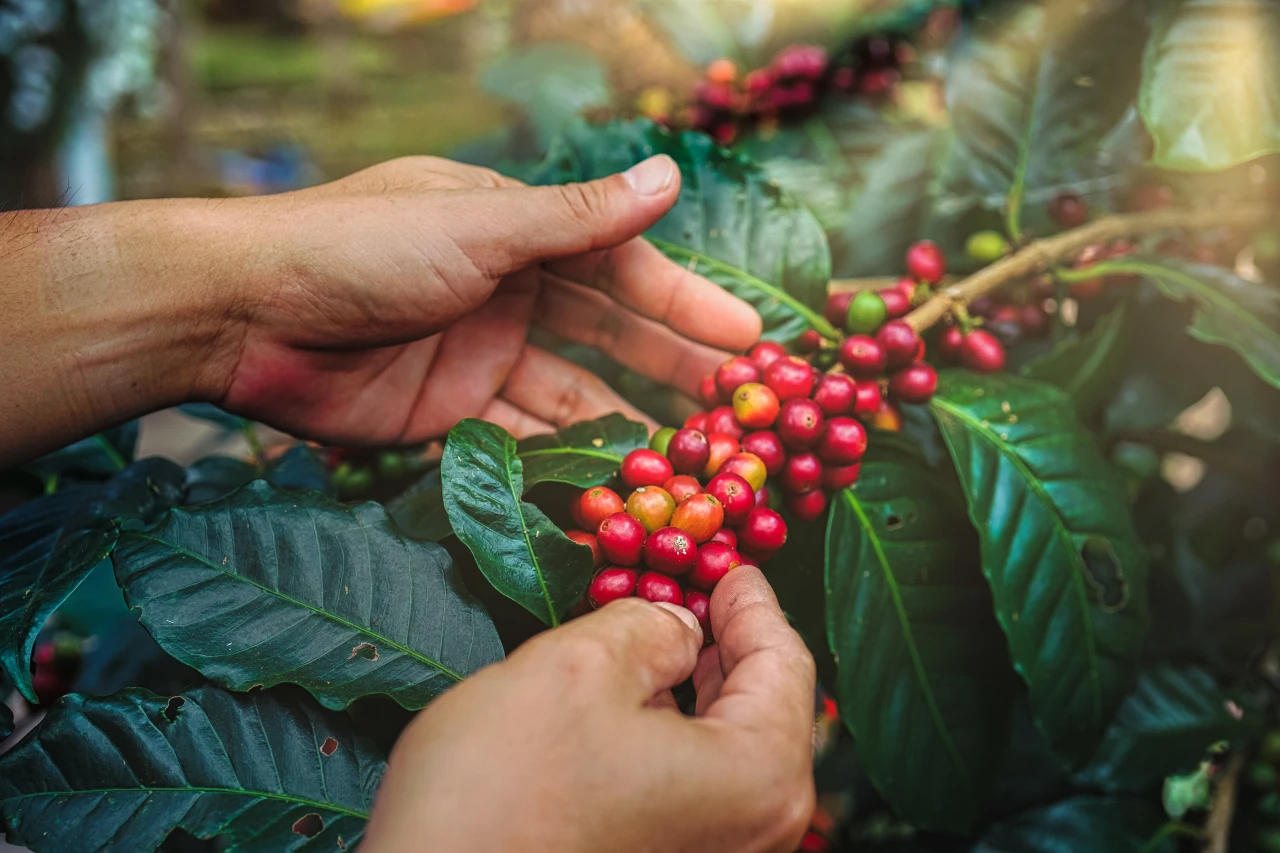
Secrets of Balinese Coffee
Indonesia ranks fourth among the largest coffee exporters in the global market, following Brazil, Vietnam, and Colombia. On average, Indonesia exports 660,000 tons of coffee beans per year.
Due to Indonesia's climate being more suitable for the production of robusta coffee, it is mainly exported abroad. Approximately 25% of coffee exported from Indonesia is arabica. Brazil and Colombia are renowned for being the largest producers of arabica in the world.
Coffee was brought to Indonesia by Dutch colonists. Attempts to transport and cultivate coffee began in 1696, and soon Indonesia became the first country where widespread coffee production took place outside of Arabia and Ethiopia, which were traditional coffee regions. Indonesia remained the largest coffee producer in the global market until the 1840s when it was overshadowed by Brazil.
By the mid-1870s, coffee plantations had spread to regions such as Sumatra, Bali, and Sulawesi. Coffee first appeared in North Sumatra around Lake Toba in 1888, and it later spread to Aceh, specifically the highlands of Gayo, in 1924. During that time, coffee was also grown in East Timor and Flores, but since they were under Portuguese rule, it was a different variety of arabica. In the late 19th century, the Dutch established plantations on the Ijen Plateau and East Java.
In 1876, a disaster struck. Coffee trees were infected by the fungus Hemileia vastatrix, commonly known as coffee leaf rust, which decimated most of the arabica plantations throughout Indonesia.
As a decisive measure, Indonesia began importing robusta coffee from the beginning of the 20th century. This variety was suitable for cultivation at lower altitudes and was resistant to diseases.
Coffee plantations in Indonesia cover over 1 million hectares, and about 90% of plantations belong to small-scale producers and cooperatives, occupying less than 1 hectare of land.
The history of Balinese coffee

Unlike other regions in Indonesia, coffee production in Bali was not directly introduced by the Dutch. Merchants from Lombok brought the coffee trees to the island, which became the foundation of coffee production.
The rich volcanic soil and mountainous climate of Kintamani quickly proved to be ideal conditions for growing coffee, and coffee bean production began to thrive.
The Kintamani region remains the main area for coffee production in Bali. Here, there are both non-touristic plantations solely dedicated to production, as well as tourist-oriented plantations that offer tours, tastings, and sell coffee in small packages in their on-site shops.
The majority of Balinese coffee is grown in small farmer cooperatives called "Subak Abians." The "Subak" organization is characteristic of rice production, where farmers join forces, create cooperatives, and help each other with technical, social, and religious matters within the cooperative.
It is believed that Subak is based on the philosophy of Tri Hita Karana, which focuses on maintaining harmony in relationships: humans with gods, humans with humans, and humans with nature. This philosophy is considered to align with modern concepts of fair trade and organic production to some extent.
Differences and specific characteristics of the two main varieties of Balinese coffee.
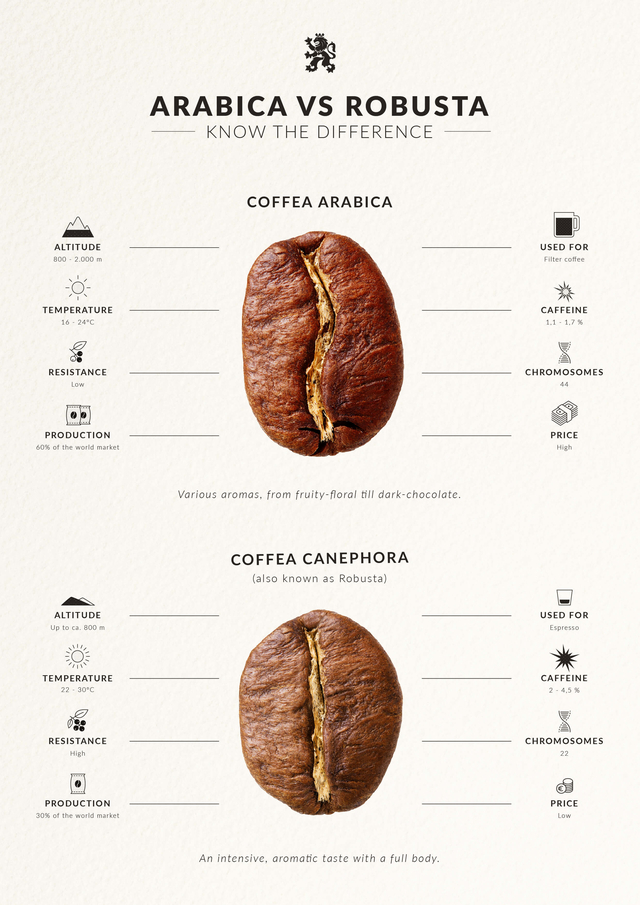
What characterizes Robusta and how does it differ from Arabica?
About 65% to 75% of the world's coffee production is Arabica, with the rest being Robusta.
Arabica:
- Discovered in the 9th century in Ethiopia.
- Grows at altitudes between 1000 to 2800 meters above sea level. The higher it grows, the richer the flavor.
- Beans are more oval in shape.
- Contains less caffeine.
- More aromatic.
- Has a more acidic, sweeter taste and richer flavor with more variations in taste nuances.
- Less resistant to diseases.
- Fruits more often but not as abundantly.
- More expensive.
Robusta:
- Discovered in the 18th century in Congo.
- Grows on plains.
- Beans are more round in shape.
- Contains 2-3 times more caffeine than Arabica.
- Less aromatic than Arabica.
- Has a more bitter, less sweet taste and less rich flavor with fewer taste variations.
- The tree is more resistant to diseases.
- Fruits less often but more abundantly.
- Cheaper.
One of the distinctive features of Balinese coffee, in most cases, is the wet processing method. In the wet method, the outer skin of the coffee cherry is first removed, and then the bean is dried. In the dry method, the bean is first dried, and then the outer skin is removed. The wet processing method is also used in other regions such as Sulawesi, Sumatra, Flores, Java, and Papua.
The taste of Balinese coffee is characterized by fruity and fresh notes, as well as a more pronounced acidity compared to coffee from other regions of Indonesia. It is believed that the fruity citrus flavor is influenced by the fact that many citrus trees are grown alongside coffee on many plantations in Bali.
Sometimes, in terms of taste, Balinese coffee is considered similar to coffee from Papua New Guinea.
On small-scale productions, the beans are manually roasted on large pans. On farms where coffee is exported, roasters are used instead of pans, allowing several kilograms of beans to be roasted at once. The machine controls the process, ensuring even roasting of the beans.
How coffee is consumed in Bali

In the local tradition, Balinese coffee is not brewed in a Turkish pot or machine but steeped with boiling water and covered with a lid to infuse. It is prepared strong, without milk, but very sweet. It is customary to only fill the cup halfway with coffee as a sign of respect.
That's why, if Balinese coffee is sold ground, it is very finely ground, which in Indonesian is called "bubuk" (powder). The coffee beans are called "biji."
Some people prefer to brew finely ground coffee in a Turkish pot, resulting in an even richer taste than simple steeping and a more intense aroma.
Of course, if you go to a European-style establishment, you will be served coffee in a beautiful cup, most likely brewed using a machine.
Where to buy good coffee in Bali?
There are three ways to buy good coffee in Bali:
1. Visit a coffee plantation, taste the coffee, gather interesting information on a guided tour, and buy coffee directly from the producer you trust.
2. Buy directly from a coffee shop that sells their own branded coffee. The Anomali coffee shop chain is particularly famous for this in Bali.
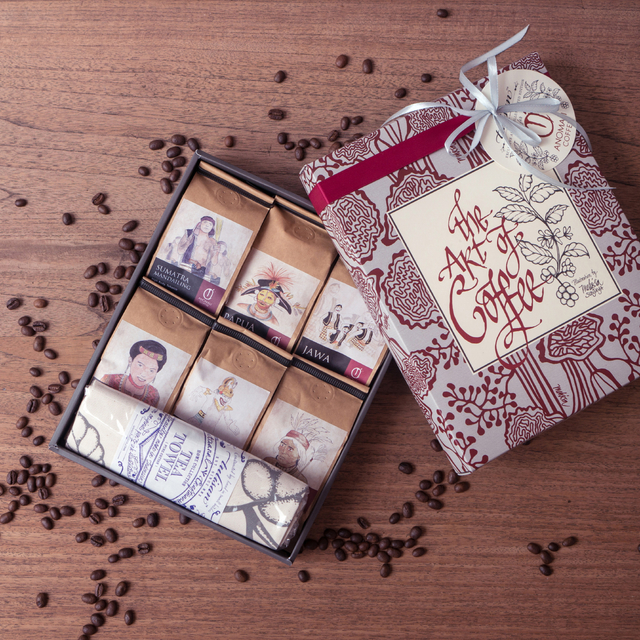
3. Buy coffee from a regular supermarket, choosing a good brand. Among the store-bought coffees, the Excelso brand enjoys the highest trust. It is available in both whole bean and ground form, in the traditional fine Indonesian powder called "bubuk." The range includes Arabica, Luwak, and blends from different regions. Or purchase on online marketplaces: Tokopedia or Lazada.
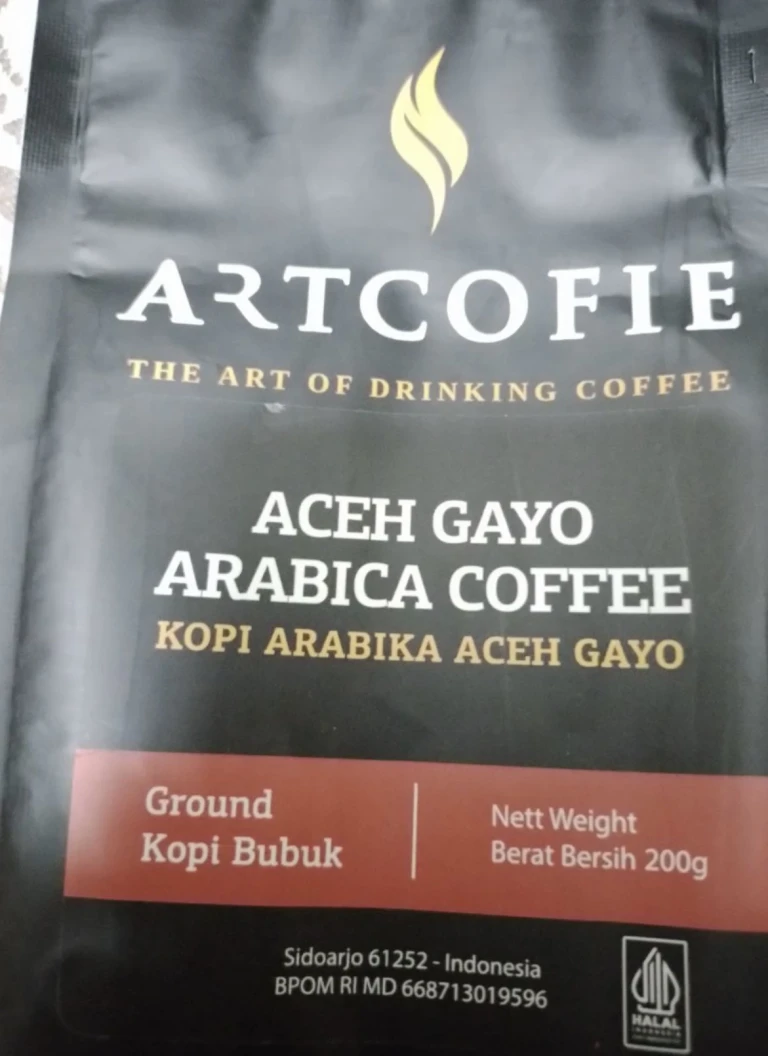
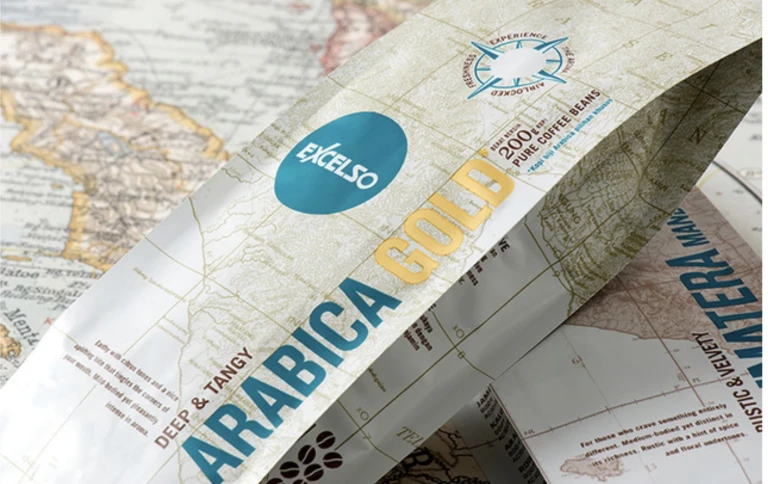
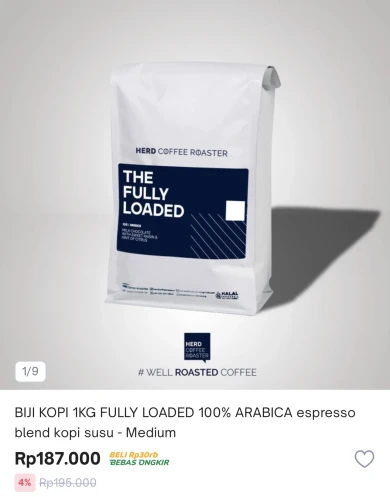
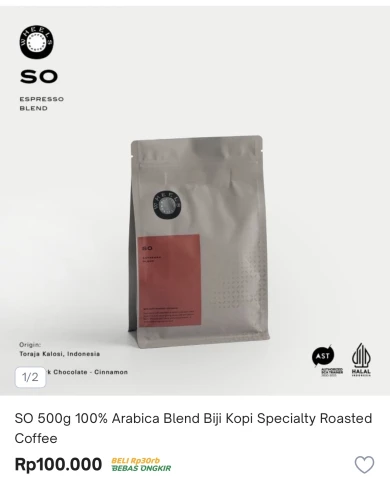
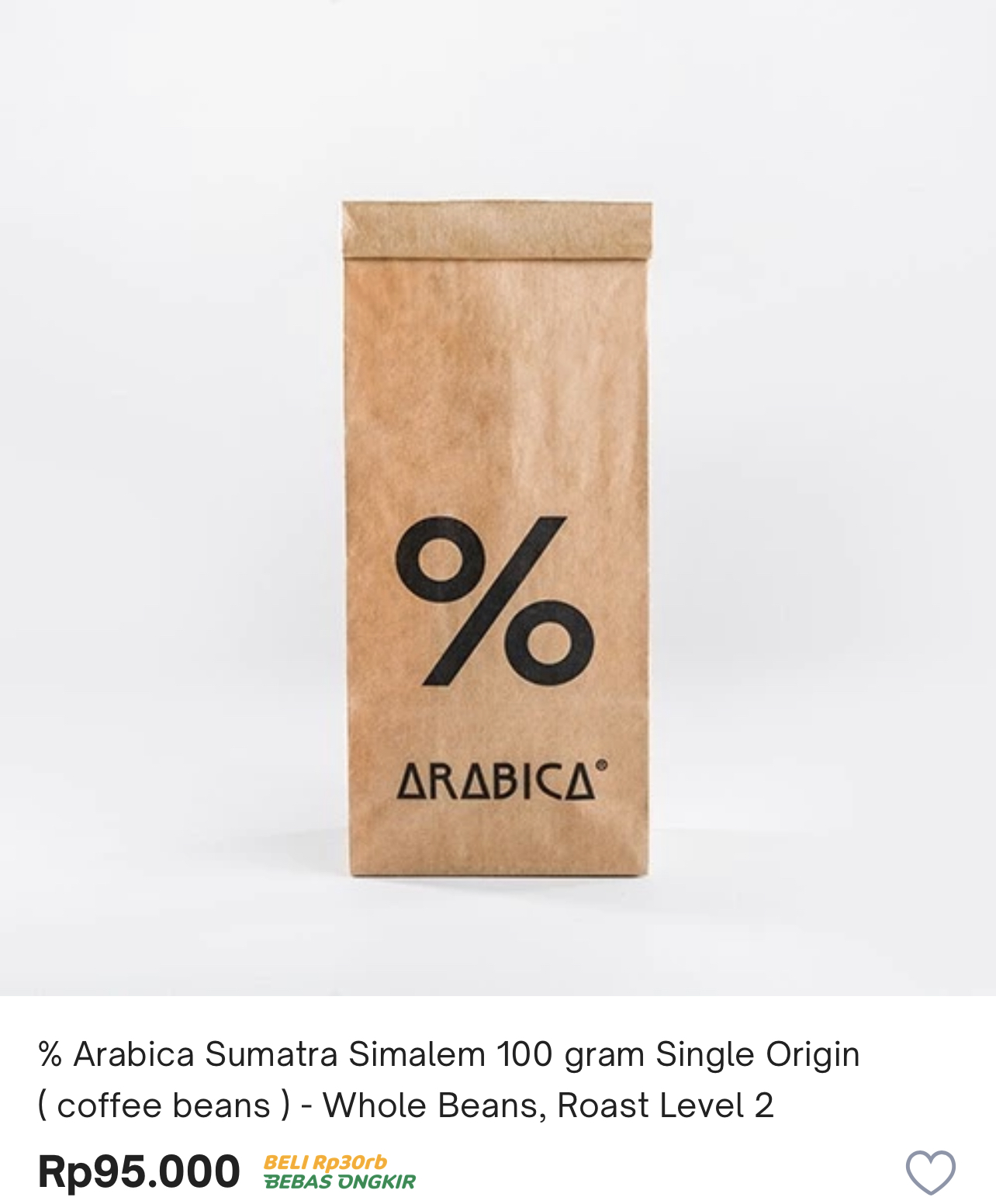
View 1
more photo
more photo
Where to find good coffee shops
There are more and more coffee shops appearing in Bali that make the preparation of high-quality coffee their specialty. Many of them are located in the cool area of Ubud, which is close to Kintamani. However, there are also places for coffee connoisseurs in the trendy hipster area of Canggu and the elite Seminyak.
Ubud
Seniman Coffee Studio, Ubud
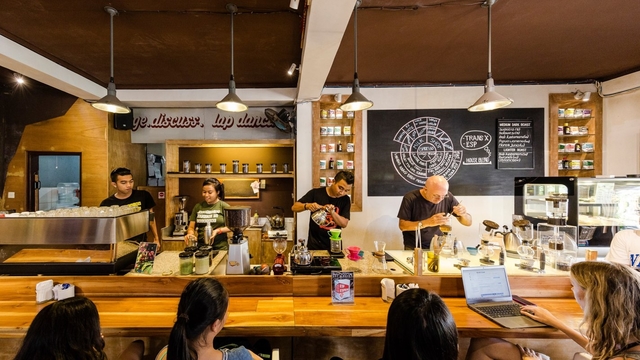
Seniman, in spirit, is more like a laboratory. The presentation of coffee and dishes here is very impressive, and the taste is magnificent. Periodically, Seniman hosts masterclasses and excursions to the coffee plantations of Kintamani.
The coffee is roasted in a building across the street, and the beverages are prepared by specially trained baristas. Here, you can choose the apparatus in which you want to prepare your coffee and the brewing method.
The café Seniman, opened in 2010, is owned by Australian sculptor Rodney Glick. The name "Seniman" translates from Indonesian as "artist" or "artisan," and the artistic approach is clearly felt in the atmosphere of the establishment.
You can either sit in the elegant café or cross the street and purchase a pack of Indonesian coffee, which will remind you of the Balinese ambiance thousands of kilometers away from the island. You can choose coffee from regions such as Bali, Java, Sumatra, Flores, Sulawesi, and Papua. The most popular ones are Bali Kintamani and Sumatra Aceh Gayo.
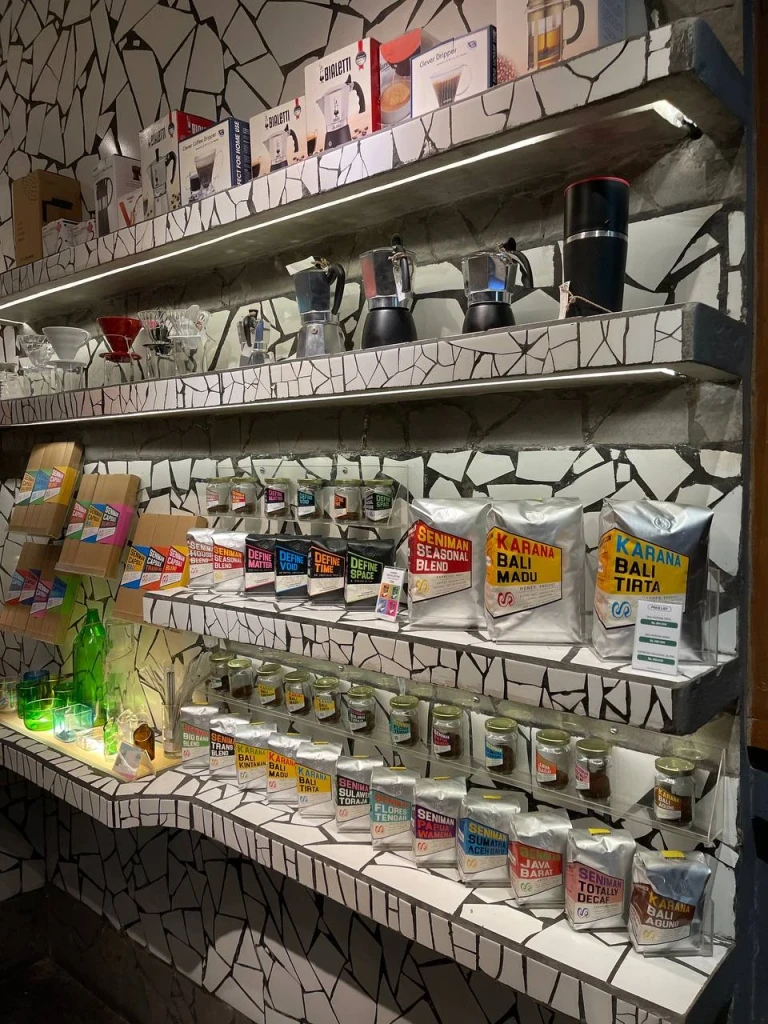
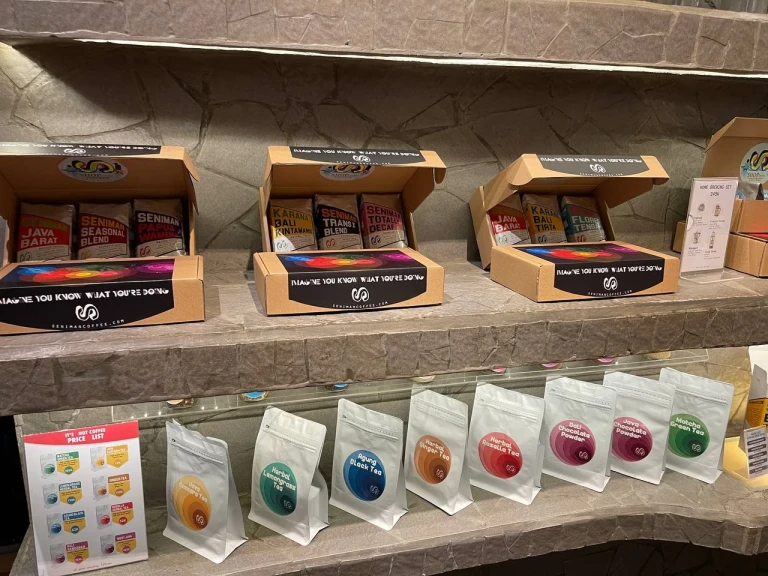
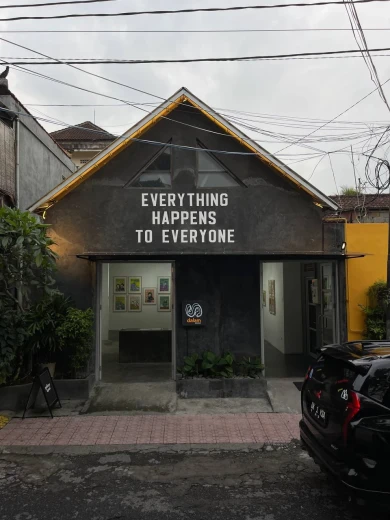
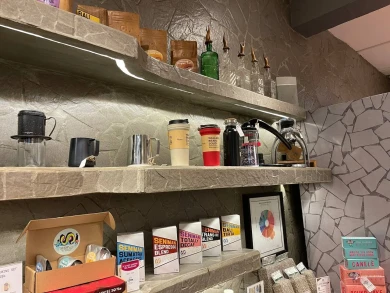
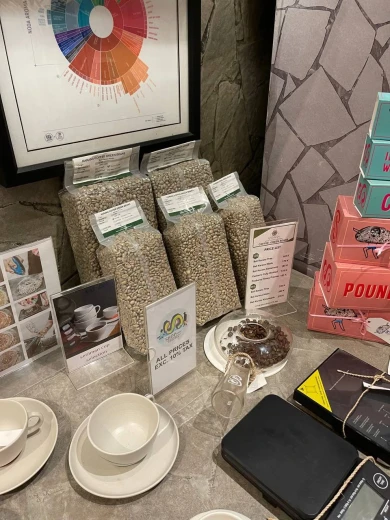
F.R.E.A.K Coffee, Ubud
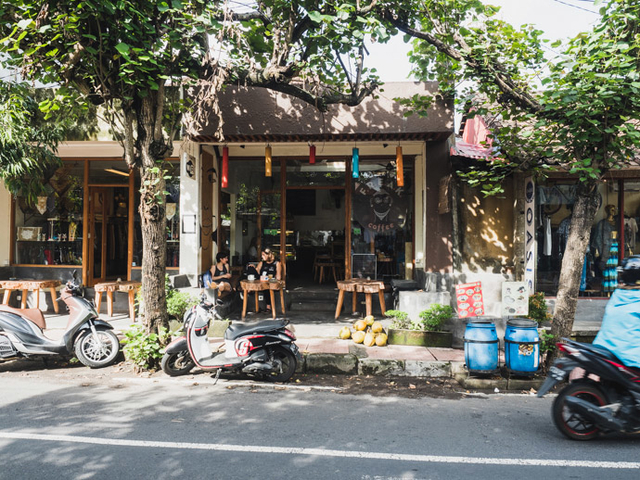
F.R.E.A.K is a small cozy café located on Hanoman Street in Ubud that doesn't particularly stand out. The abbreviation is derived from the words "Fresh Roasted 'Enak' Arabica from Kintamani," so now you know all the ins and outs of this coffee. The café specializes in cold brew coffee.
The coffee is produced on an organic farm and roasted daily, ensuring maximum freshness. The result is a sweet, less bitter, and very rich flavor.
The equipment used is also top-notch. Rancilio espresso machines and a Mazzer coffee grinder are used to prepare the coffee.
Anomali Coffee, Ubud and Kuta
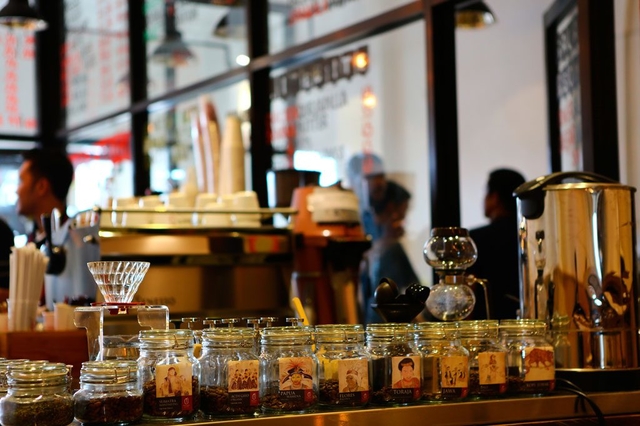
The Anomali coffee chain originated in Jakarta in 2007 and only later opened branches in Kuta and Ubud.
Here, you can try coffee made either with an espresso machine or brewed manually.
Anomali is a large coffee production company that processes coffee beans from all over Indonesia. Here, you can purchase coffee from regions such as Bali, Papua, Java, Sumatra, Sulawesi, and other corners of Indonesia. They also sell civet coffee, which is produced for the company in Sumatra.
Anomali Café Ubud is conveniently located on the central street near the royal palace. It's a great place to meet friends, have breakfast, or sit and work with a laptop.
Black Eye Coffee
The coffee shop offers a wide selection of Indonesian coffee beans to choose from: from Sumatra, Kintamani, Java, and more.
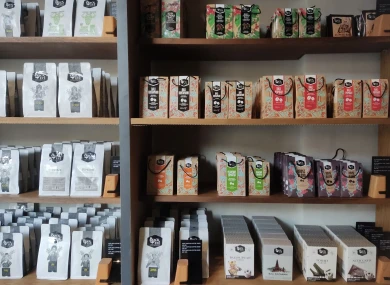

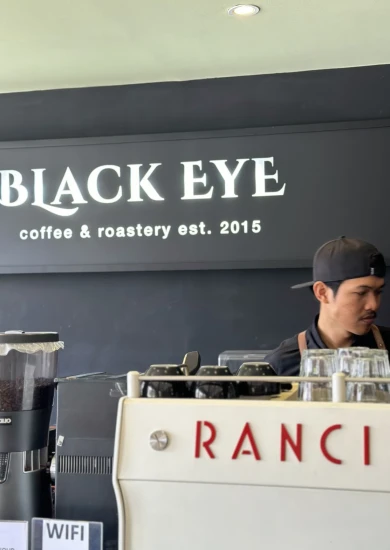
Lazy Cat
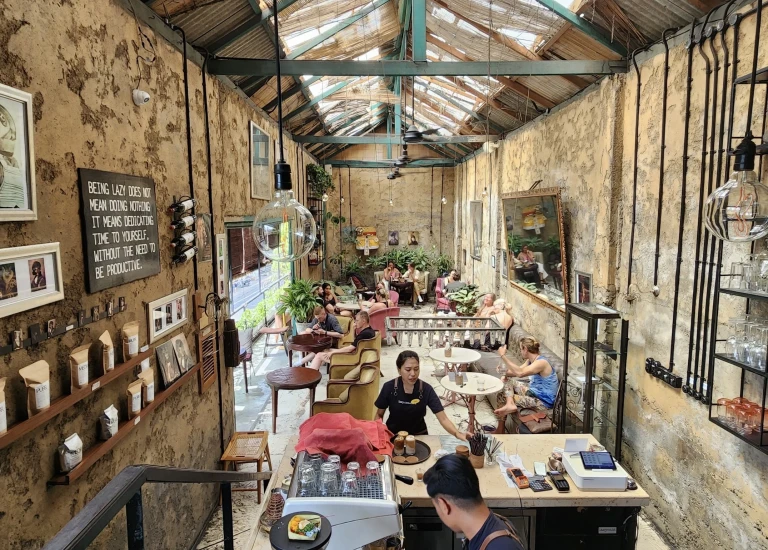
A very cozy cafe with vintage decor and delicious food.
They sell packs of 100% Arabica coffee from local roasters.
BISTRO SOLEIL Coffee Shop
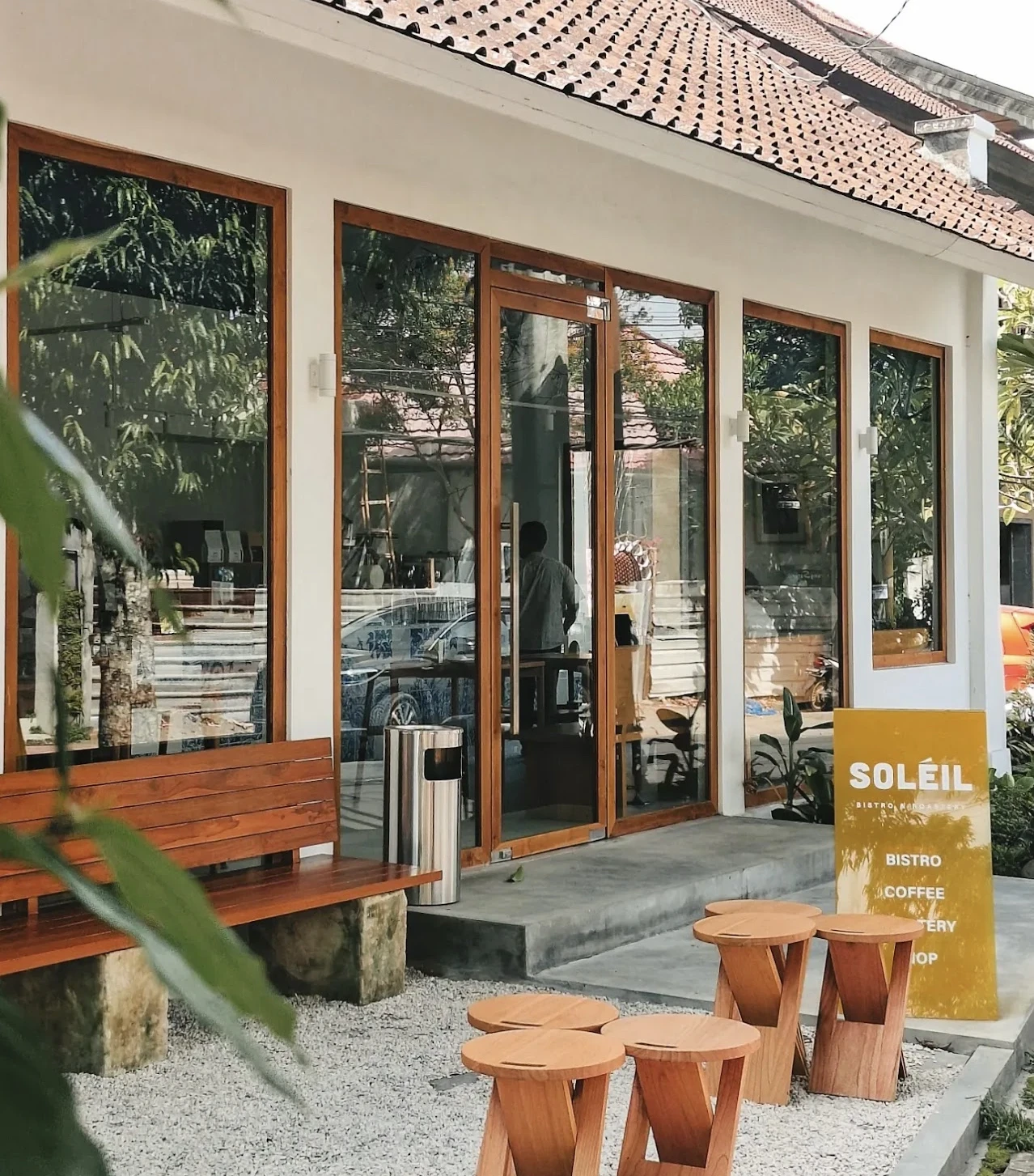
The new specialty coffee shop offers a small selection of beans for sale.
You can sample them by ordering a drink in the coffee shop.
I recommend trying the V60 pour-over. Occasionally, they have beans from famous Russian roasters The Welder Katherine, which are not for sale but brewed in the coffee shop.
Ubud Coffee Roastery
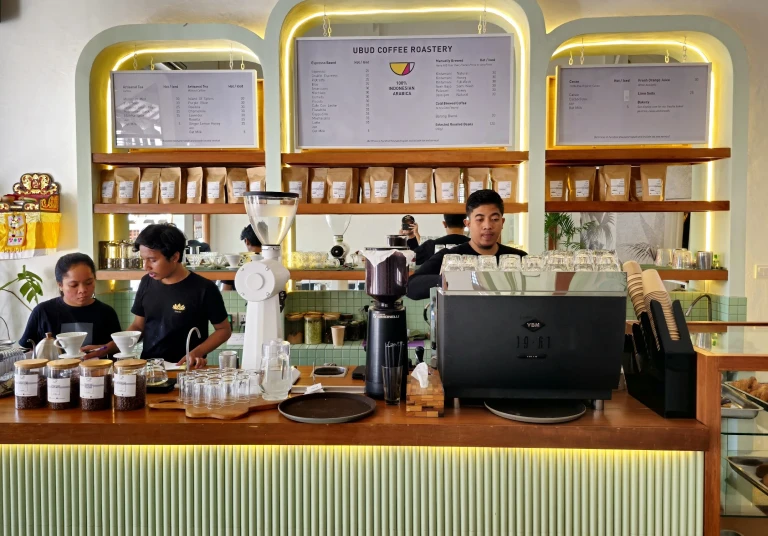
A modern specialty coffee shop in Ubud. There are two locations: one in the center and one in Penestanan.
The coffee shop in the center is larger, with plenty of seating both under air conditioning and in an open area under a canopy, suitable for comfortable laptop work.
The Penestanan coffee shop is smaller, better for take-away coffee or meeting friends.
Beans for sale come from different regions and are packaged in 250-gram craft bags. You can ask to have them ground to your brewing method.
RÜSTERS
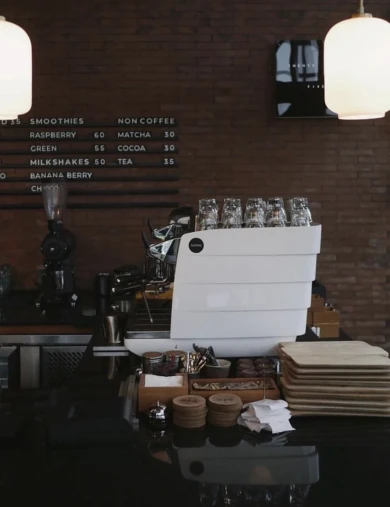
The Rüsters coffee shop and restaurant has excellent coffee roasting equipment and offers a selection of beans: Costa Rica, Rwanda, Sumatra, and Kintamani.
100% light roast Arabica is perfect for both manual and machine brewing.
Canggu
Hungry Bird Coffee Roaster
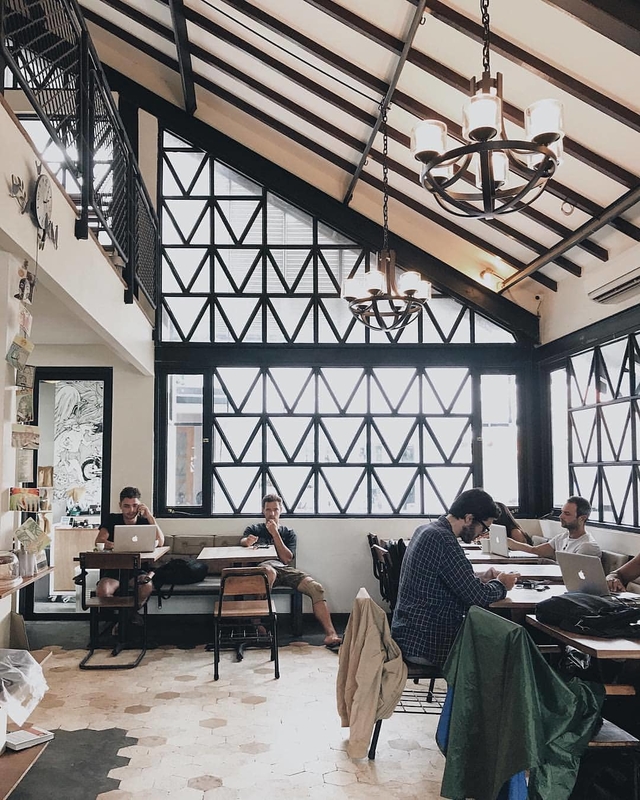
The "Hungry Bird Coffee Roaster" is a shop and café combined.
The food is delicious, and the prices are affordable. It's worth coming here for breakfast or lunch. The menu is frequently updated, so you're unlikely to get bored with the food here.
"Hungry Bird" opened in 2013. Initially, the local café owner Edo opened a small coffee shop. "Hungry Bird" quickly became a favorite spot for coffee-loving surfers in Canggu. When the place gained popularity among the expat community, Edo expanded the establishment.
The signature coffee of the café is the "Espresso Brava," made from a blend of Brazilian, Sumatran, and Colombian coffee.
Blacklist Coffee Roasters - Roastery and Concept Store
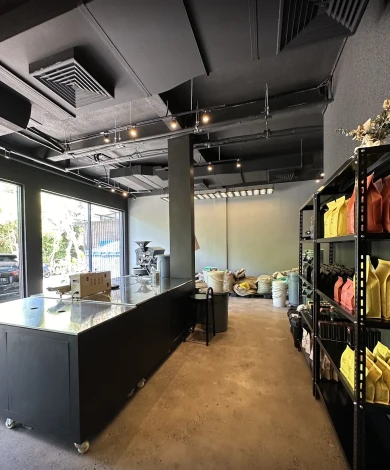
Blacklist Coffee Roasters is a major Australian coffee roasting brand. They offer 100% Arabica beans from Costa Rica, Colombia, and Indonesia.
At their cafe in Canggu, you can taste different coffee varieties and order different brewing methods: manual brewing or using a coffee machine.
Coffee is sold in packages of 250g and 1kg. They also sell a lot of professional coffee shop and barista equipment in their store: filters, Aeropress, scales.
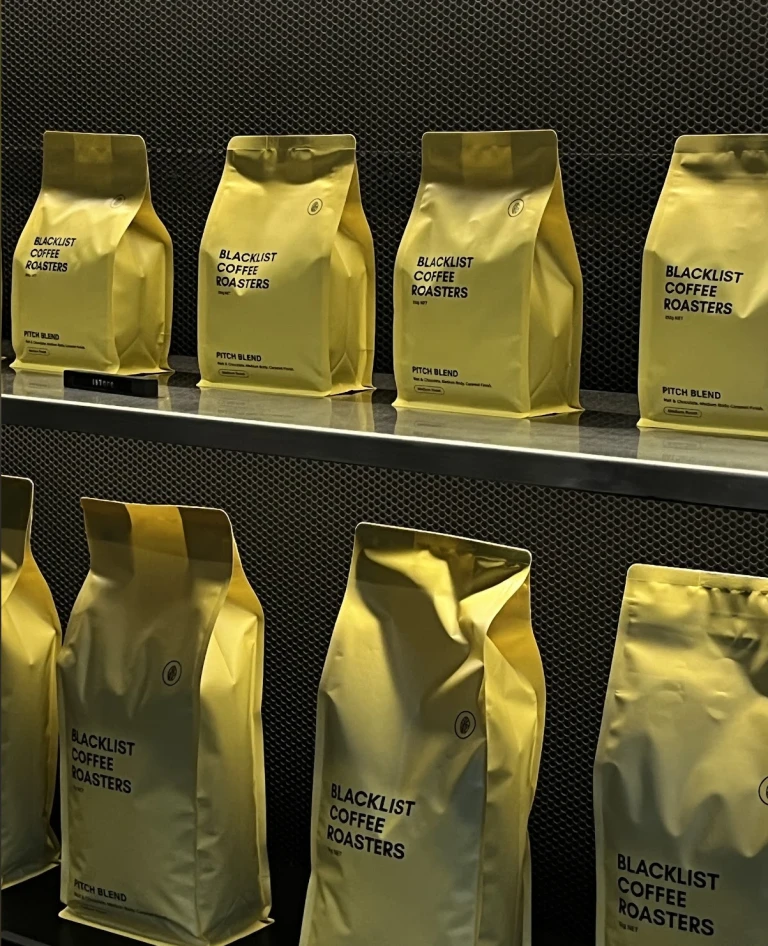
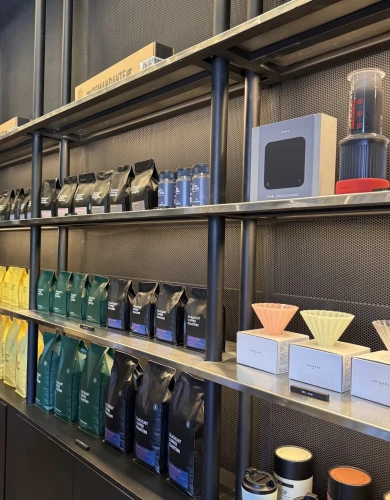
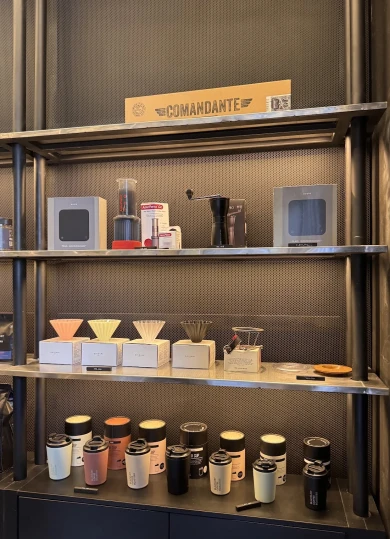
Corals Coffee Roastery
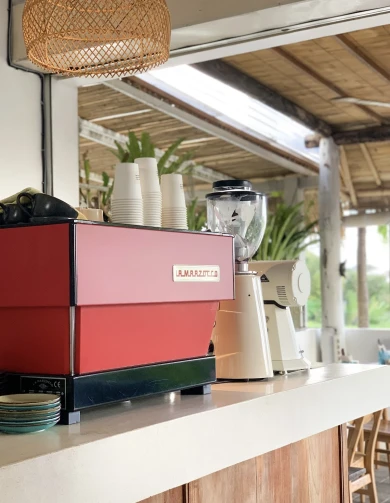
Corals is a small and cozy coffee shop in Canggu. They have modern equipment at the bar: a La Marzocco coffee machine and grinders.
They have their own roaster - they roast the beans themselves and offer them to customers and guests. You can buy packages to take home for self-brewing.
Revolver Coffee Canggu
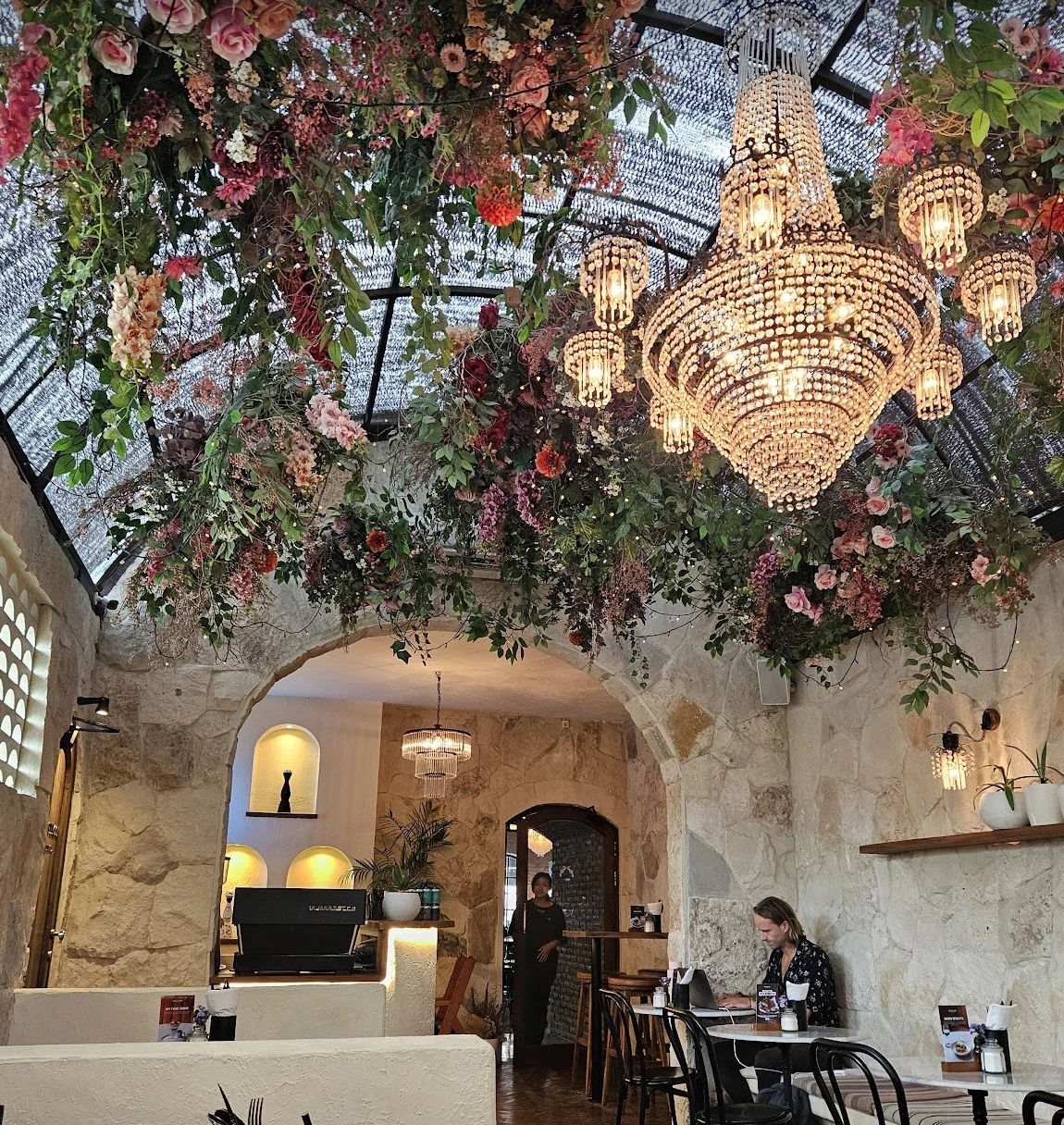
Revolver was founded in 2011 as an Australian-style cafe in every sense. Initially, it was a modest establishment for 30 people, which has noticeably expanded over the years while maintaining its philosophy and spirit.
The signature coffee here is made from a blend of beans from Guatemala, Colombia, and Papua New Guinea. The quality of the coffee is so high that it is supplied to cafes, restaurants, and hotels across the island.
Daily Grind Coffee Shop and Roastery

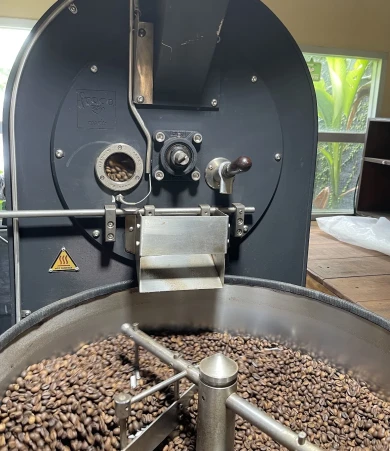
Coffee beans are roasted in this cozy cafe from Kintamani and the island of Flores, Indonesia. They also serve good breakfasts and lunches here.
Coffee is available in craft packaging at a comfortable price.
Suitable for manual brewing.
Seminyak, Kuta
% Arabica Bali Kuta Beachwalk
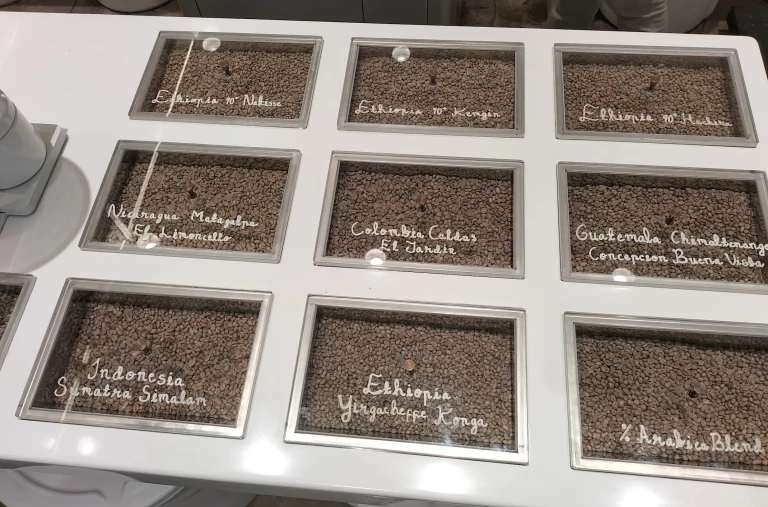
Arabica - a network of popular coffee shops across Asia. They have excellent delicious coffee roasted in-house. You can purchase beans from Ethiopia, Guatemala, and Indonesia.
The coolest equipment is used in the cafe: a high-class La Marzocco coffee machine and several Mahlkoening coffee grinders.
Expat Roasters
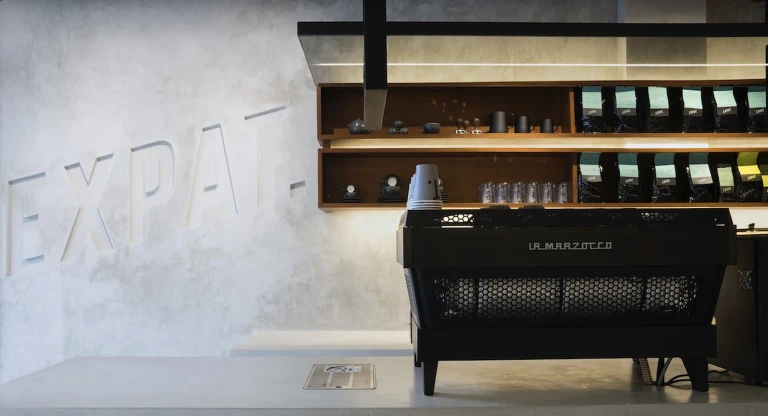
Near Expat are Sisterfields and BO$$ MAN - all three places are owned by Australian Adam McCassey. He opened this establishment in collaboration with Sydney barista Shae Macnamara, who won the 2016 Australian Coffee in Good Spirits barista competition.
Coffee is prepared on a top-class La Marzocco Linea PB machine.
Expat works closely with local coffee producers. Supplies come from Ulian Murni Farm in Kintamani.
If you order a cappuccino, the barista will come to your table and expertly demonstrate the art of creating a coffee masterpiece.
Revolver Coffee, Seminyak
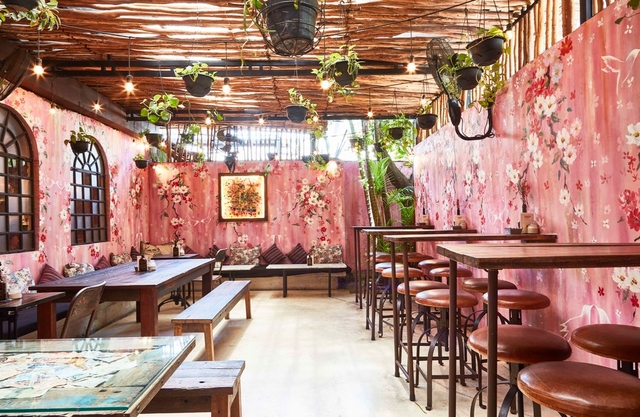
Revolver Coffee is located in a small alley near Laksmana Street (Jalan Laksmana).
Behind an inconspicuous wooden door lies a true gem. Revolver is usually bustling with people, and the coffee here is top-notch.
Founded in 2011, Revolver started as an Australian-style café in every sense. It began as a modest establishment for 30 people and has noticeably expanded over the years while maintaining its philosophy and spirit.
The signature coffee here is prepared from a blend of beans from Guatemala, Colombia, and Papua New Guinea. The coffee quality is so high that it is supplied to cafes, restaurants, and hotels across the island.
In addition to regular coffee, you can order a cold brew beverage here. It is served in a glass bottle, making it convenient to take with you.
The Koop Roaster & Cafe, Seminyak
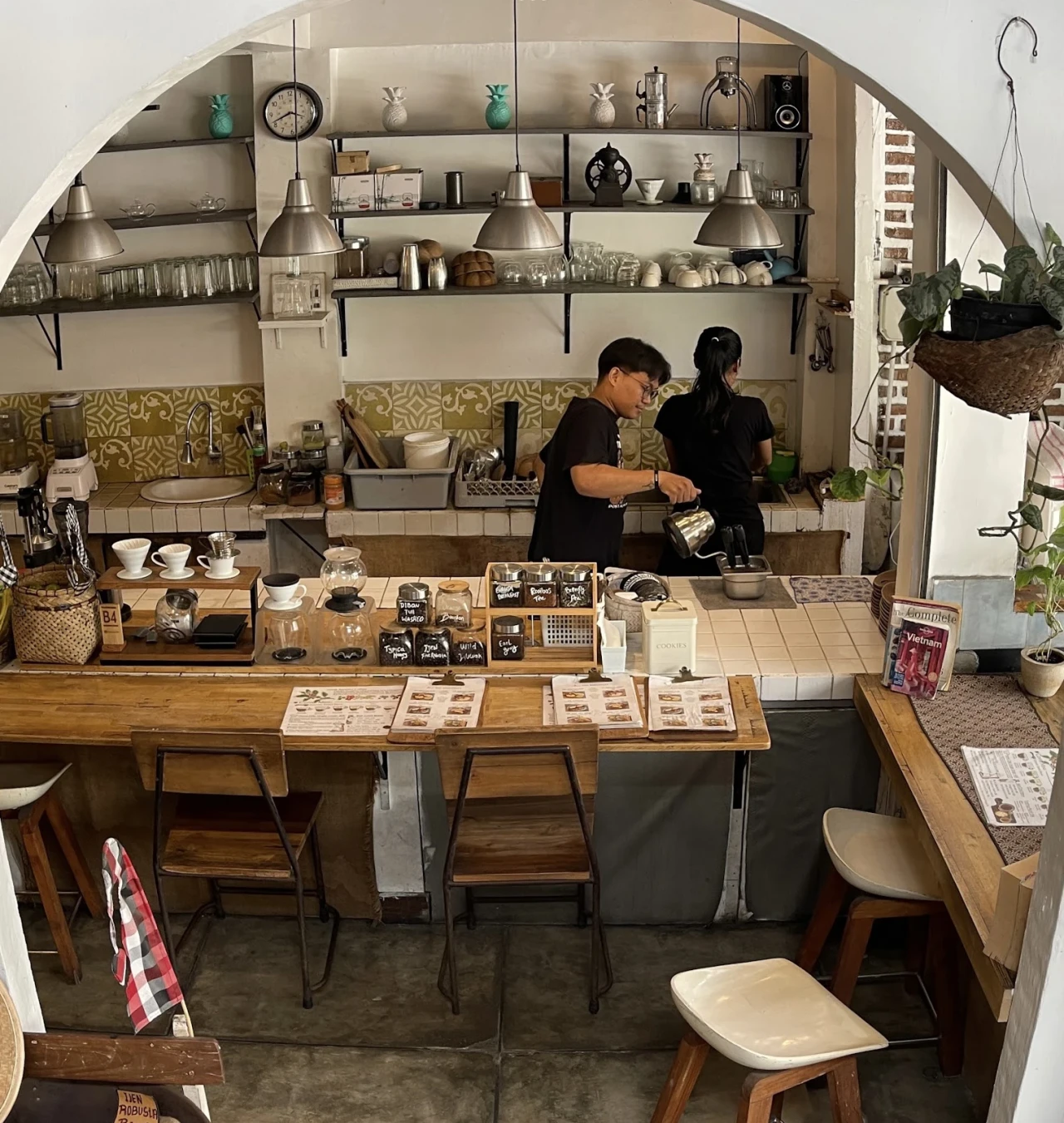
Koop is engaged in the production of Balinese coffee. They grow, process, roast, and brew coffee. There are numerous brewing methods available, including V60 Hario, Aeropress, ROK Presso, and Clever Drip. Koop's plantations are located in the Petang area, and they strictly employ organic methods in their production. They also have coffee cultivation experts from Japan overseeing their operations.
Sanur
Kunudhhani
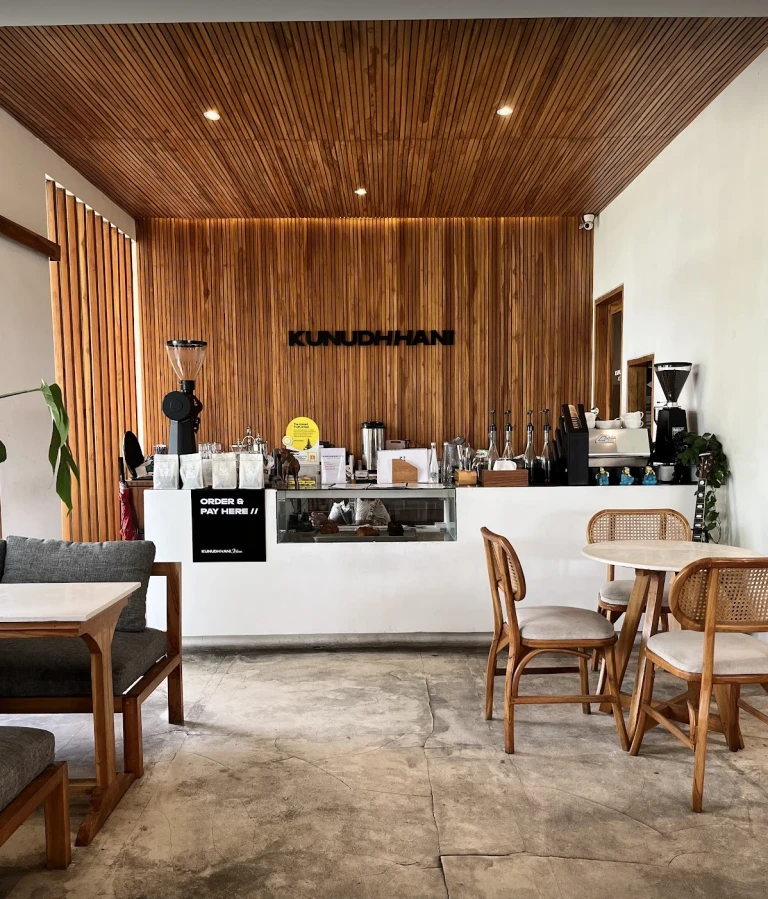
A very charming Balinese coffee shop in Renon with incredible coffee. The baristas roast the coffee themselves, offering light-roast natural Arabica. The roaster is right in the cafe, and if desired, you can request a tour.
Packaged in about 200g, there is washed and naturally processed coffee for manual brewing.
Bukit
% Arabica Bali Uluwatu
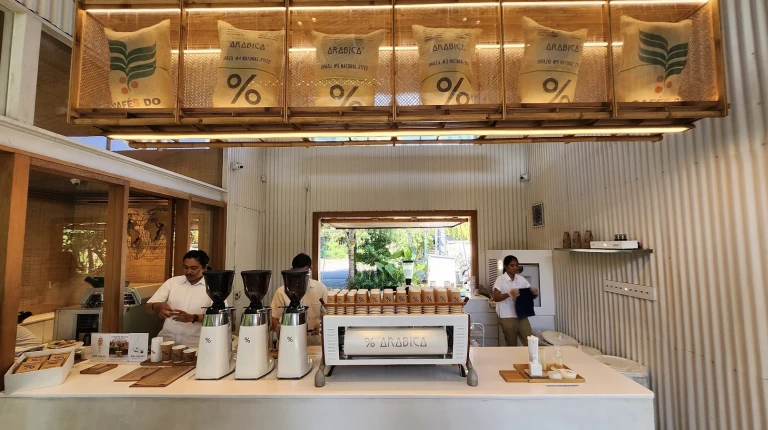
Arabica - a network of popular coffee shops across Asia. They have excellent delicious coffee roasted in-house. You can purchase beans from Ethiopia, Guatemala, and Indonesia.
The cafe boasts top-of-the-line equipment: a high-class La Marzocco coffee machine and several Mahlkoening coffee grinders.
Adjacent, you can buy coffee beans at Alchemy Uluwatu.
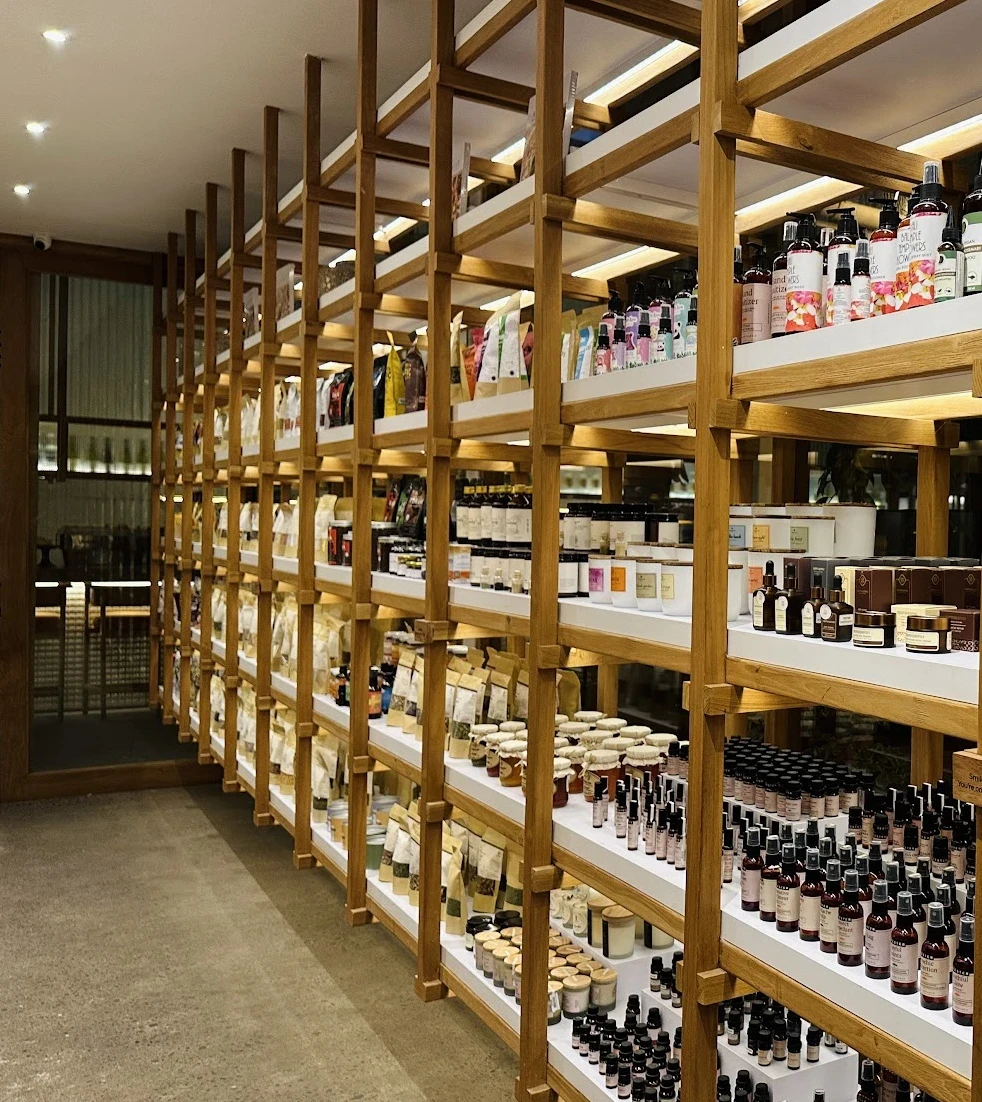
BGS Uluwatu - Bali Surf Shop and Coffee Bar
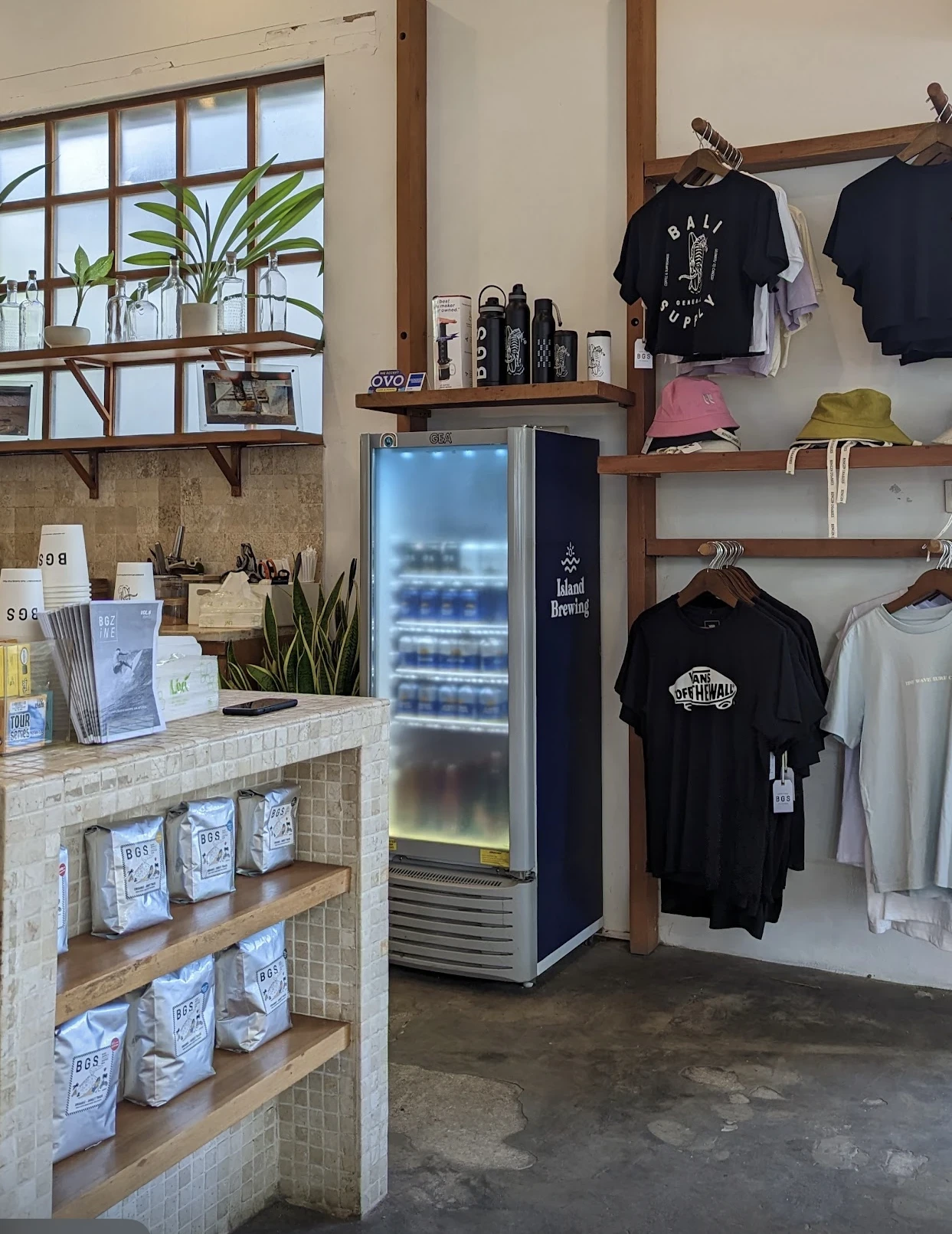
At the trendy surfer coffee shop BGS, you can not only enjoy tasty coffee but also buy beans by the kilogram. Choose from beans from different regions of Sumatra, Java, Kintamani, etc.
Uluwatu Motorcycles Cafe and Restaurant
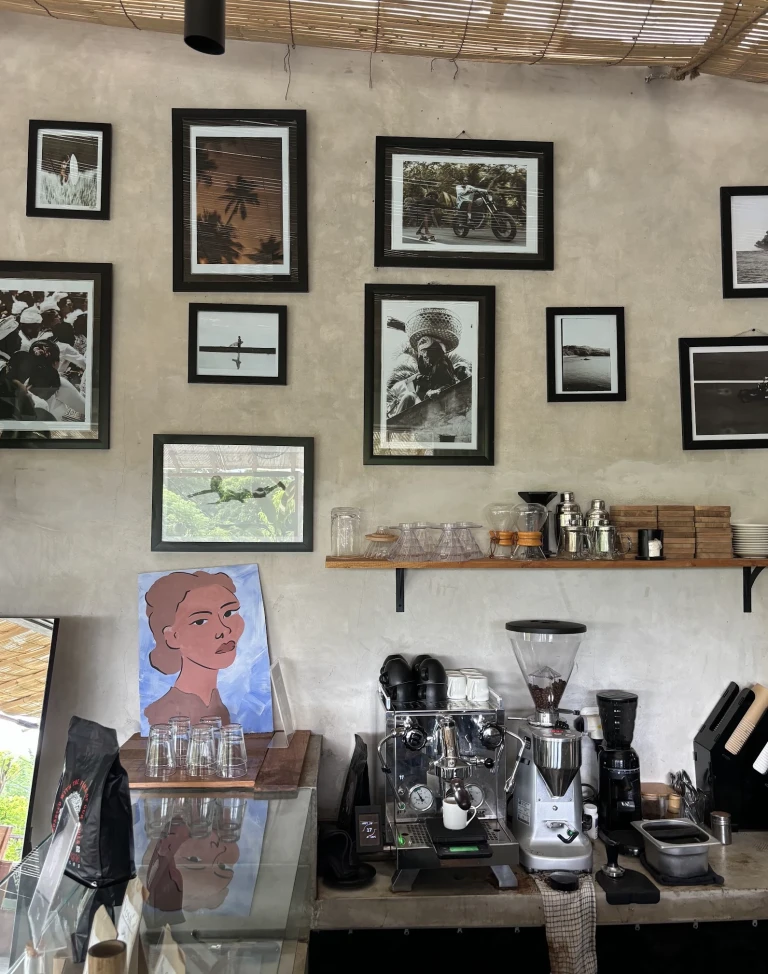
A cafe with quality coffee and great breakfasts. Motorcycle atmosphere, comfortable chairs, relaxed atmosphere. Coffee for sale by the kilogram: Kintamani, Java.
Coffee Plantations
At a coffee plantation, you can usually see how coffee grows and how it is processed. Sometimes, you can even participate in the coffee roasting process. They will explain the necessary conditions for proper coffee growth, how to differentiate between male and female beans, and which beans are of better quality. Typically, you can sample several varieties of coffee for free, such as coffee with local spice blends and different types of tea. Coffee luwak tasting usually incurs a small fee of around 50,000 to 60,000 Indonesian Rupiah since this coffee is relatively expensive to produce. You are not obligated to purchase any tea or coffee you enjoy, but if you feel inclined to do so, it is worth considering. Some farms also keep civets, which participate in the production of luwak coffee.
Here are some highly recommended plantations in Bali:
Bali Pulina
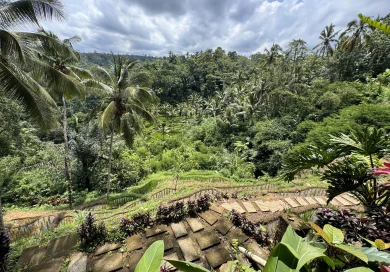
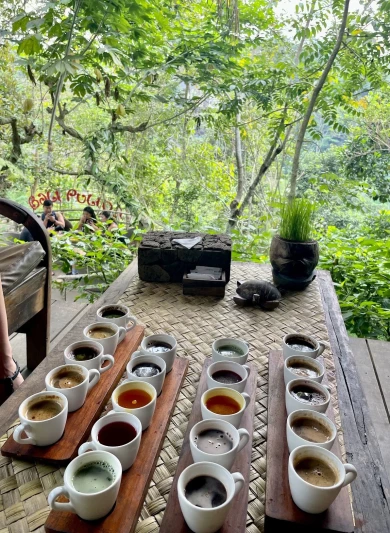
OKA Agriculture Bali
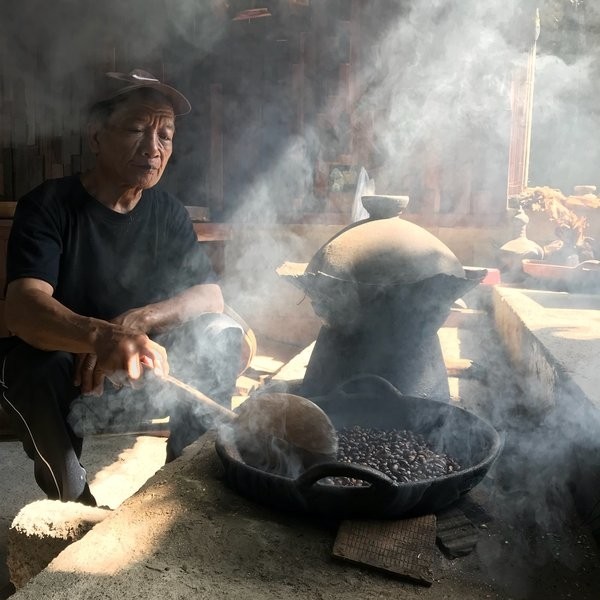
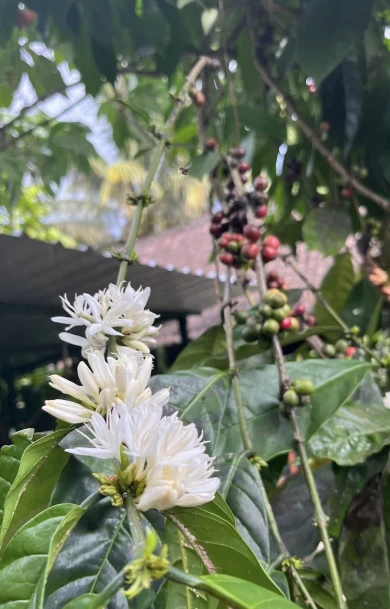
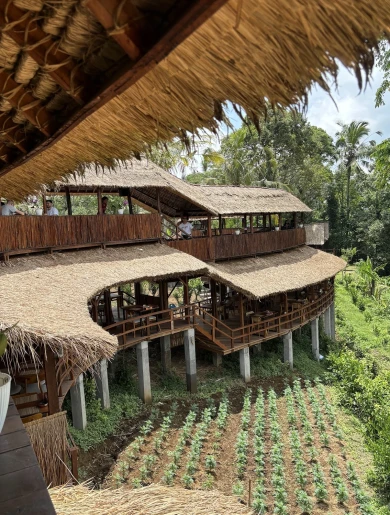
BAS De ATAYANA (I Love BAS Agrotourism)On the map
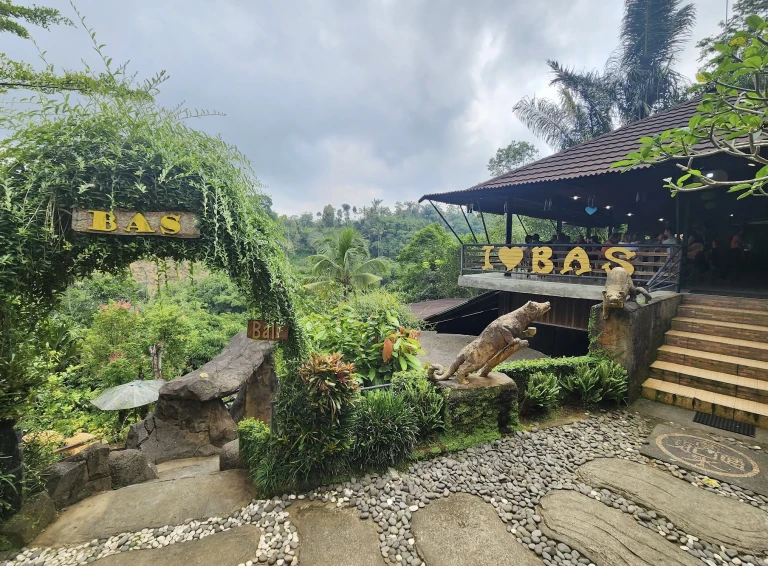
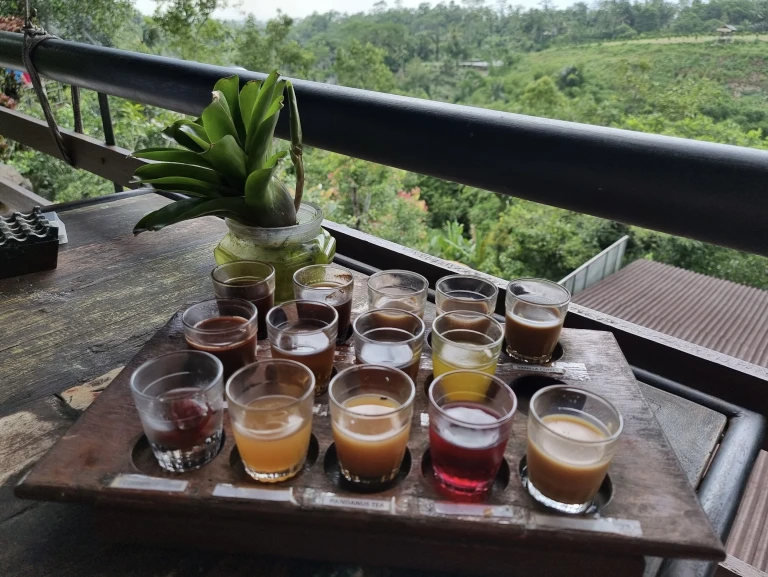
Dewi Bali Coffee Plantation
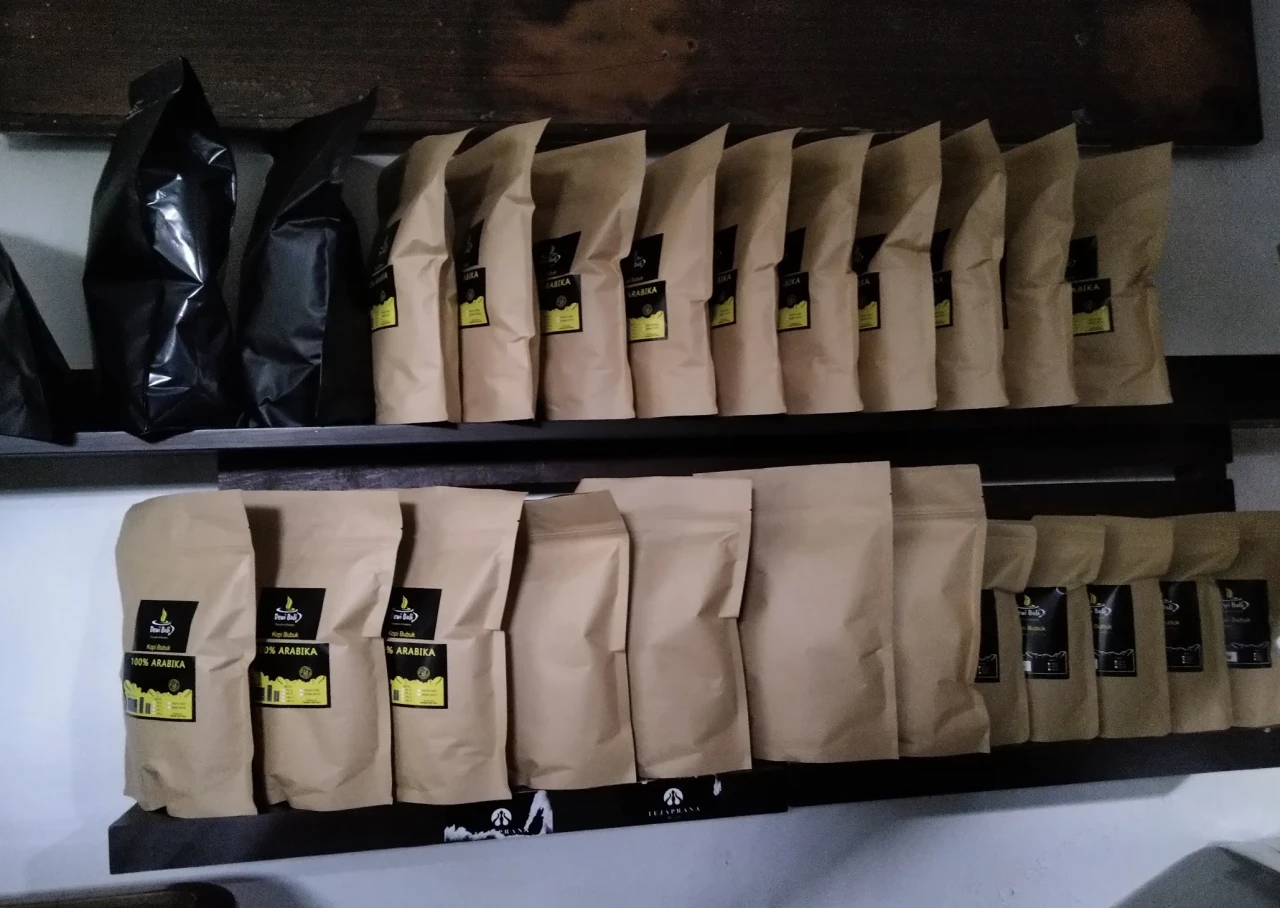
You can add one right now!